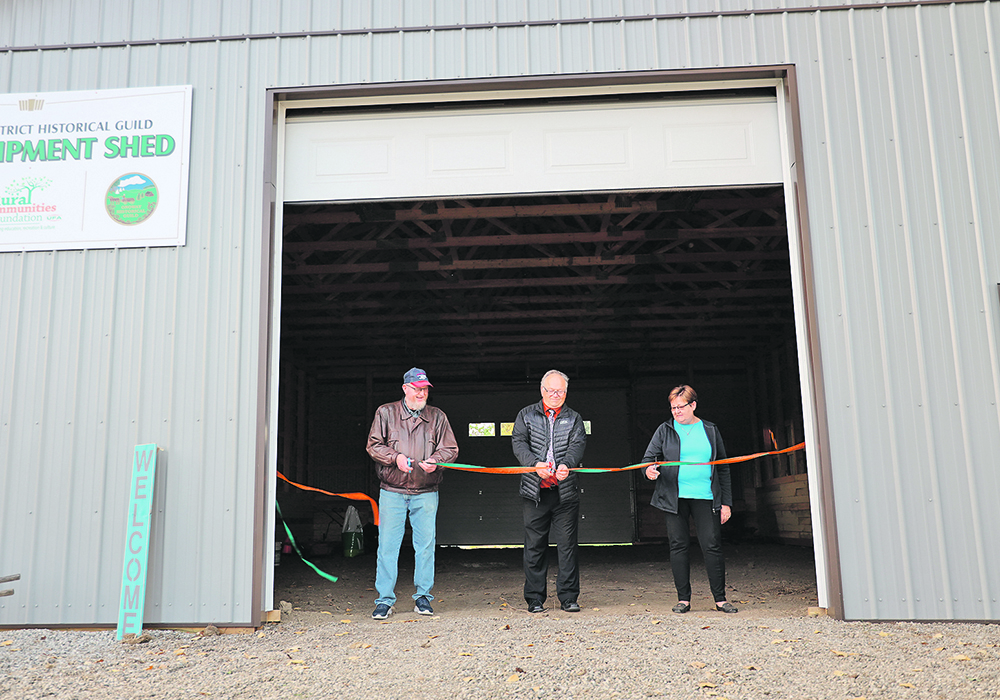The Rural Communities Foundation says its annual donations have been particularly important during the pandemic
A foundation that has been giving away $100,000 per year to help farmers and ranchers in Alberta says the money is needed more than ever.
The COVID-19 pandemic has weakened a key feature of rural life in the province, said Harvey Hagman, who is chair of the UFA Rural Communities Foundation.
“What it’s done is the volunteers that are so strong in many communities, it’s kind of prevented people getting together and doing a lot of this fundraising in their own right … I’m sure it’s had an impact on all the communities in Alberta.”
Read Also

Using artificial intelligence in agriculture starts with the right data
Good data is critical as the agriculture sector increasingly adopts new AI technology to drive efficiency, sustainability and trust across all levels of the value chain.
As part of a five-year initiative totalling $500,000, the foundation is in its third year of offering $100,000 per year to eligible groups in the province.
They include community service co-operatives, registered charities under the Canada Revenue Agency, and non-profit organizations that are registered with either the provincial or local municipal governments, said a statement by the foundation.
“The mandate of the foundation is to improve the sustainability of farmers and ranchers in Alberta by improving access to funding for educational, recreational, and cultural facilities and programs in Alberta.”
Projects last year ranged from $27,250 for renovations to a 111-year-old wooden grain elevator in Castor, Alta., to $15,000 for a skatepark in Vegreville.
“I think a lot of people in rural Alberta, they have a strong attachment to the rural communities and the towns and the counties,” said Hagman.
“I believe they’re proud of their facilities that they have, and they look after them and they always want to make improvements, and this grant will allow avenues to help their communities. And I think that’s the great thing about (the foundation) is it’s trying to make stronger rural communities.”
Applicants have until Aug. 31 to make their submissions to the foundation, which was created in 2014 by the United Farmers of Alberta Co-operative Ltd. (UFA) to assist people in the communities it serves. “We have 120,000 members … so we have a big influence in rural Alberta.”
Eligible projects must be in communities that have a UFA presence within 200 kilometres. They also must be completed within two years of receiving the funding, with people encouraged to apply for at least $10,000.
Hagman sees a certain parallel to how the foundation is helping rural Albertans during the COVID-19 pandemic and the situation a century ago, when the UFA was a farmer-led political movement that formed the provincial government from 1921 to 1935.
“I think we formed the government when the Spanish flu pandemic kind of ended. Now we’re getting through this pandemic.”
Starting with about $3 million in archived equity left to the UFA by producers, the foundation has grown its core fund through investments to about $5 million, with plans to increase that amount to $10 million, he said. “It’s my intention as the chair that hopefully when the five-year commitments are through that we’ll be able to greatly enhance our contributions with the way the fund is growing.”
Besides the current initiative of $100,000 per year for five years for rural communities, the foundation recently made a commitment of $100,000 per year for four years to the Simpson Centre for Agricultural and Food Innovation and Public Education, which is part of the School of Public Policy at the University of Calgary, said Hagman.
The centre was launched last year following a $5-million donation from John Simpson, chair of the CANA Group of Companies and owner of a ranch in the Cochrane area. Other donors included Alberta Beef Producers, the Canadian Cattlemen’s Association, and the Alberta Cattle Feeders’ Association.
The funding by the UFA Rural Communities Foundation will not only enable research into things such as climate change and trade, it will promote leadership in western Canadian agriculture through improvements in the way producers farm, said Hagman.
“It’s (about) how will farmers reduce their carbon footprint, like everybody else, looking at new ways to look after the land and how to best promote agriculture and the changes that have to be made to be more sustainable.”
For more information about the application process for the Rural Communities Foundation Grant, visit rcfufa.com/how-to-apply/. Winners are to be announced in October during Co-operatives in Canada Week.
















